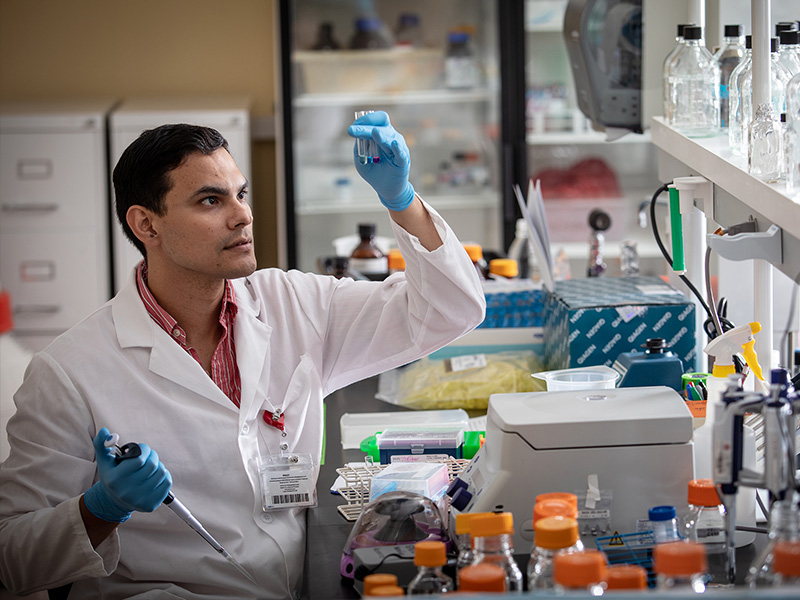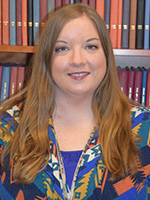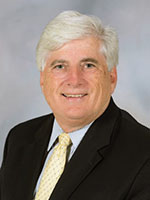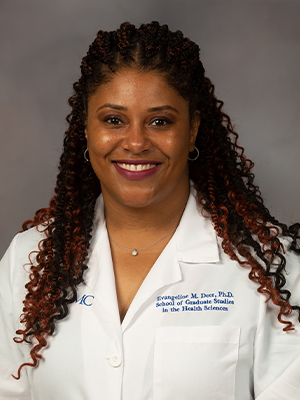Postdocs drive research, training at UMMC

Dr. Jessica Bradshaw knows she wants to pursue a career as a faculty member at a research-intensive university. So after she earned her Ph.D. in microbiology and immunology from the University of Mississippi Medical Center last year, she knew her next step: a postdoctoral fellowship.
Postdoctoral fellows, or postdocs, have finished their terminal degree and continue training under the mentorship of an independent scientist. A fellowship is a virtual requirement for scientists who apply for tenure-track positions and provides valuable experience for other career opportunities. UMMC has about 27 postdocs in research-intensive fellowships, with additional postdocs across campus with more clinical and teaching-focused roles.

“I wanted to receive additional training that would help me become a better researcher,” said Bradshaw, who is now a postdoctoral fellow in the Department of Physiology and Biophysics in the School of Medicine. “I wanted to learn new techniques, but also get the best training available in physiology.”
Fellowships allow postdocs to engage in new fields of research and apply their previous skills to new scientific questions. For instance, Bradshaw is now applying her knowledge of immunology to study the causes of hypertension in pregnancy in the lab of Dr. Joey Granger.

“Postdoctoral fellows play an integral role in the research and training missions at UMMC,” said Granger, dean of the School of Graduate Studies in the Health Sciences and director of the Office of Postdoctoral Studies. “They are responsible for the high level of productivity of our research programs. They are also at the front line in training our graduate students in state-of-the-art laboratory skills.”
Dr. Edgar Torres Fernandez, a postdoc in the Department of Cell and Molecular Biology with Dr. Licy Yanes Cardozo since 2015, compares postdoctoral training to a medical residency.
“It’s a period of transition from formal schooling into full independent scientists,” said Torres Fernandez, an M.D. who studies polycystic ovary syndrome. “Postdocs do the day to day work in laboratories, from mentoring to conducting experiments to writing and reading manuscripts.”
Like Bradshaw, Torres Fernandez also plans to pursue faculty positions, but focus more on clinical and human research projects.
Like other American research universities, UMMC welcomes postdocs from around the world. Torres Fernandez, who completed his medical training in Paraguay, is also passionate about helping other postdocs from abroad get settled into life and work in the United States.
“It can be a bit of a culture shock [starting a postdoc in another country], not just in terms of learning the language or the food, but differences in cultural expectations and training,” he said. “If you can accelerate the process of making them comfortable, then they can be more productive in their research,” Torres Fernandez said.
Bradshaw and Torres Fernandez are both members of the UMMC Postdoctoral Advisory Committee, a group of current and recent postdocs who advise and aide the SGSHS’s Office of Postdoctoral Studies in generating innovative ideas to enrich the training experience for all postdocs at UMMC.
“Our goal is to build an encouraging community for postdocs and provide them with the resources they need to be successful while they are here at UMMC,” Bradshaw said.
Currently, the Office of Postdoctoral Studies supports trainees through scholarships to the Business Advantage Program at Millsaps College, hosting guest speakers on career opportunities and professional development topics, and courses on responsible conduct of research and educator training. In celebration of National Postdoc Appreciation Week from September 16-20, the committee and the SGSHS have hosted a series of events to help connect postdocs from across the institution and build their personal and professional networks on campus.

“Going forward, we’re also interested in creating more opportunities for postdocs to attend conferences and web-based resources for postdoctoral fellows,” said Dr. Evangeline Deer, a postdoc in the Department of Pharmacology and Toxicology and member of the advisory committee.
Deer, who earned a Ph.D. in environmental science at Jackson State University, is interested in pursuing scientific publishing and a faculty position after her postdoc. She recently submitted a grant application to study oxidative stress in preeclampsia, which helped her strengthen her writing and editing skills.
“In order to write an effective grant, you have to understand what you’re doing and explain your research well,” she said.
Another experience that has helped Deer learn to communicate science better is through mentoring undergraduate and graduate students.
“If you can teach it to someone else, then you know it,” Deer said.
Deer, who joined Dr. Babette LaMarca’s laboratory in April, says getting to know and work with the other postdoctoral fellow at UMMC, particularly through the advisory committee.
“It’s been an awesome experience working with everyone and finding ways to learn from each other,” she said.


